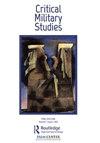Knowledge in and of military operations: enriching the reflexive gaze in critical research on the military
Q1 Arts and Humanities
引用次数: 4
Abstract
ABSTRACT This article analyses the recent military ‘turn to reflexivity’ in relation to current reflexive commitments in critical studies of the military. With reflexivity, military organizations have begun to inquire into its own role as a producer and user of knowledge, and into the constitutive effects of knowledge in and on the world. A reflexive concern with the conditions and effects of knowledge has thus made militaries sensitive to the epistemic dimensions of military force. The broader socio-political implications of the military’s attention to epistemics, in terms of how knowledge may constitute and bring into being novel socio-political orderings, make it an urgent task to explore this development in relation to the reflexive state of critical research on the military. The first argument that I make in the article is that existing reflexive commitments in critical military studies are conceptually able to target scholarly-military epistemic interactions and the constitutive effects thereof, but less able to address epistemic distinctions in terms of how knowledge is produced and how different conditions shape the content of knowledge. This, however, is what is needed to critically address the military reflexive development. Based on this, I argue secondly that a fruitful broadening and enriching of the reflexive gaze may be achieved by further taking reflexivity in a Bourdieusian direction – a move that ultimately works complementary to existing reflexive commitments in critical military studies.军事行动中的知识:丰富军事批判研究中的反射凝视
摘要本文分析了最近军事“转向反射性”与当前军事批判性研究中的反射性承诺的关系。通过反思性,军事组织已经开始探究其作为知识生产者和使用者的角色,以及知识在世界中和对世界的构成效应。因此,对知识的条件和影响的反射性关注使军队对军事力量的认识维度敏感。从知识如何构成和形成新的社会政治秩序的角度来看,军队对认识论的关注具有更广泛的社会政治含义,这使得探索与军队批判性研究的反射状态相关的这一发展成为一项紧迫的任务。我在文章中提出的第一个论点是,批判性军事研究中现有的反射性承诺在概念上能够针对学术军事认识互动及其构成效应,但在知识如何产生以及不同条件如何塑造知识内容方面,却不太能够解决认识差异。然而,这正是批判性地解决军事反射性发展所需要的。基于此,我认为,第二,通过进一步朝着布迪厄式的方向发展反射性,可以实现反射性凝视的富有成效的拓宽和丰富——这一举措最终与批判性军事研究中现有的反射性承诺相辅相成。
本文章由计算机程序翻译,如有差异,请以英文原文为准。
求助全文
约1分钟内获得全文
求助全文
来源期刊

Critical Military Studies
Arts and Humanities-History
CiteScore
1.90
自引率
0.00%
发文量
20
期刊介绍:
Critical Military Studies provides a rigorous, innovative platform for interdisciplinary debate on the operation of military power. It encourages the interrogation and destabilization of often taken-for-granted categories related to the military, militarism and militarization. It especially welcomes original thinking on contradictions and tensions central to the ways in which military institutions and military power work, how such tensions are reproduced within different societies and geopolitical arenas, and within and beyond academic discourse. Contributions on experiences of militarization among groups and individuals, and in hitherto underexplored, perhaps even seemingly ‘non-military’ settings are also encouraged. All submitted manuscripts are subject to initial appraisal by the Editor, and, if found suitable for further consideration, to double-blind peer review by independent, anonymous expert referees. The Journal also includes a non-peer reviewed section, Encounters, showcasing multidisciplinary forms of critique such as film and photography, and engaging with policy debates and activism.
 求助内容:
求助内容: 应助结果提醒方式:
应助结果提醒方式:


